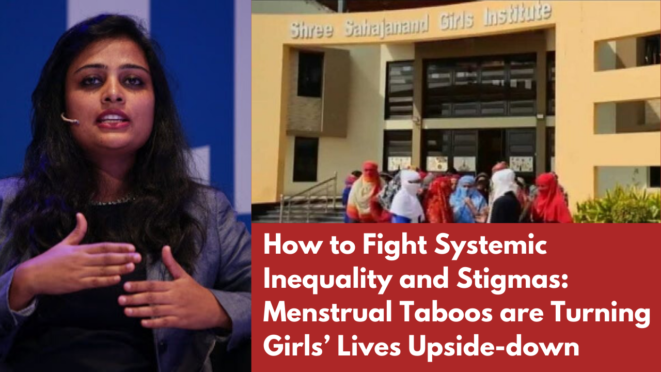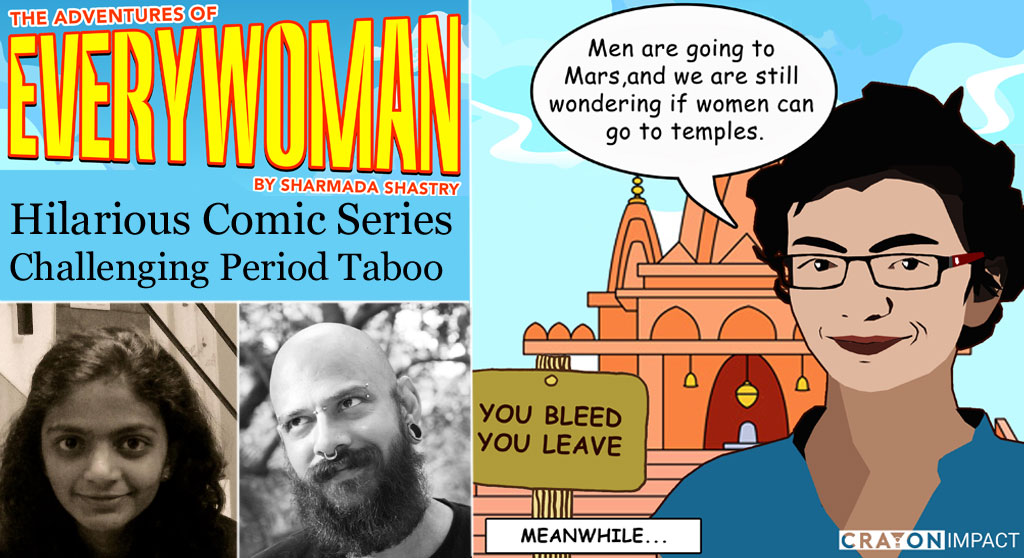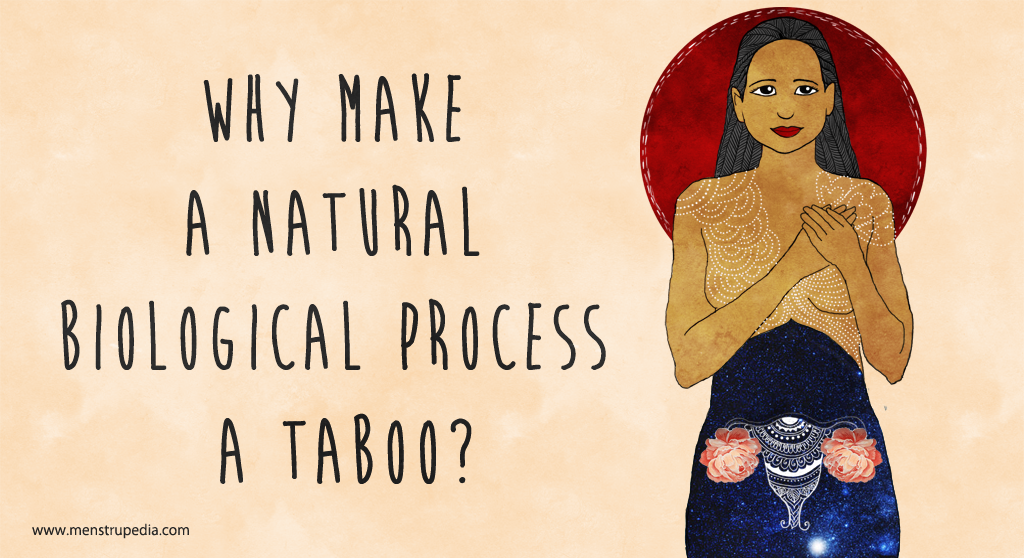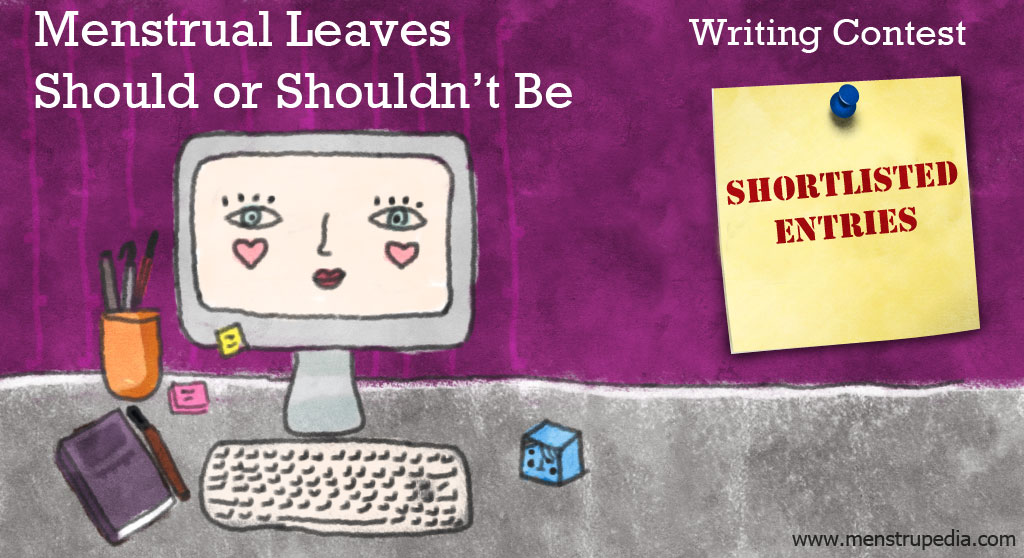A horrific incident took place in Gujarat recently that caught everyone’s attention.
68 female college students at the Shree Sahajanand Girls Institute in Bhuj were made to remove their underwear and prove that they were not menstruating. All this, because a soiled sanitary pad was found out in the open.
How do such ideologies guide these institutes and somehow find their way into students’ lives, influencing their mindsets? Come to think of it, what happened to these girls is a violation of their basic human rights.
The educational institution in question maintains a register for checking whether its female students are on their period or not. They have fixed rules that still consider menstruating girls to be somehow impure and also prevent them from entering temples or the hostel kitchen. They are not allowed to even mingle with other hostel inmates when they are menstruating! This is known as ‘Menstrual Untouchability’ and practicing untouchability in public or in private life is a punishable offence under Article 17 of the Indian Constitution.
When I was researching to understand the level of menstrual awareness in India, a doctor once pointed out to me that the performance graph of girls in schools is very high because they stay competitive in class. However, when they get their period, their performance, participation, and self-confidence drop to a great extent around the 6th and 7th grades. Indeed, about 23% of young girls drop out of school when they get their period. Due to a lack of proper knowledge and resources, they follow menstrual taboos and regressive beliefs. This paves the way for society to treat girls unequally right from the very start and this is how they begin to lag behind boys.
Menstrual Taboos’ Costs to the Economy and Scope for Development
In India, 1.2 crore girls start menstruating every year. In the long term, only 23% of women make it to the workforce compared to the remaining percentage of men who do. If our Honorable PM wants us to be a 5 trillion dollar economy in the next 5 years, we cannot achieve it without a 75% workforce of women actively participating in it.
An NSSO report shows that India’s Female Labour Force Participation Rate fell to a historic low of 23.3% in 2017-18 as opposed to its 75.8% male labour force participation.
It is sad to see how menstruation is a key determinant of a systematic mechanism to control girls’ agency when they hit puberty. We are always penalizing girls for menstruating and in effect, nip their capacities in the bud by doing so.
These are some of the many menstrual-related wrongs that are still followed in Indian society:
- Teaching girls to be ashamed of their bodies
- Making them feel ashamed for bleeding every month
- Shunning them from religious duties and obligations during their period
- Preventing them from mingling with other family members
- Asking them to continuously cover themselves up
- Making them follow sudden restrictions upon puberty such as don’t talk to boys, don’t run so much, don’t laugh so loudly and don’t sit cross-legged.
The list is endless. Gradually, this is how our girls are being mentally affected:
- By developing insecurities that are reflected in their personalities
- Drop-in academic performance
- Lack of self-esteem and confidence
- Stunted personal growth
- Chronic depression
- Strains in marital and familial relationships
If a girl cannot talk about a natural biological process openly, she will not even raise her voice when she comes across even larger issues such as rape or sexual abuse, because she will be made to believe that it is all her fault should these befall her. As a society, we teach girls to be ashamed about their bodies as soon as they hit puberty.
It is also ironic to see how our society worships fertility but stigmatizes menstruation. This is because of the fact that menstruation and ovulation are related, but this link was not very well known. It was only accepted until after the mid 18th century. Considering the fact that humans have existed on earth for the past 200,000 years, this is a very recent discovery. Yet, menstrual blood is considered impure is a belief that benefits only a select set of people: those who gain more power from women feeling lesser and asking for lesser in return.
We need to teach young girls to be confident in their bodies and to feel powerful. It is high time that we addressed this as a human rights issue rather than just a women’s one.
There are multiple solutions at hand:
- Teach every girl about periods before her menarche
- Making Menstrual Education mandatory in schools
- Ensure that more parents and teachers support their children in understanding puberty
- Set-up adequate resources like sanitary napkin vending machines and sanitary waste disposal systems in schools
- Be informed and not spread menstrual myths or taboos
Menstrual Education can be taught from grade 5 onwards; a few suggestions towards this end would be to:
- Base it entirely upon scientific information
- Add words like ‘vagina’ and ‘penis’ to pedagogical vocabulary so that these body parts are de-shamed
- Teach children about periods in the same manner in which they are taught about the digestive system
- Take a step forward by removing stigmas with experiments
Speaking of experiments, Anupriya Marar challenged the notion that touching a plant when you are on your period would kill it. She had stored her period blood using a menstrual cup, diluted it with water, and used that solution to water the Tulsi plant at her house. She has even shared an article about this. Lo and behold, the plant actually grew! Imagine thousands of women set a world record by conducting such an experiment! Imagine the change it would bring about in people’s mindsets.
Even as an optimist, I know that it will truly take generations to change everyone’s attitudes about menstruation for the better. Still, I think we have had a great start by being vocal about it. Earlier, all this took place behind closed doors because when a subject is taboo, people don’t see the size of the problem. When the taboo is broken, the problem starts to become visible and more and more people begin to address it until it reduces significantly.
Our journey has only just started, but the first step in the solution are comics like Menstrupedia that are designed to make readers feel comfortable because they remove the shame associated with periods. Today, many teachers are using these comics as teaching material. Such resources are useful in our long struggle to normalize and de-stigmatize periods, particularly so in India.
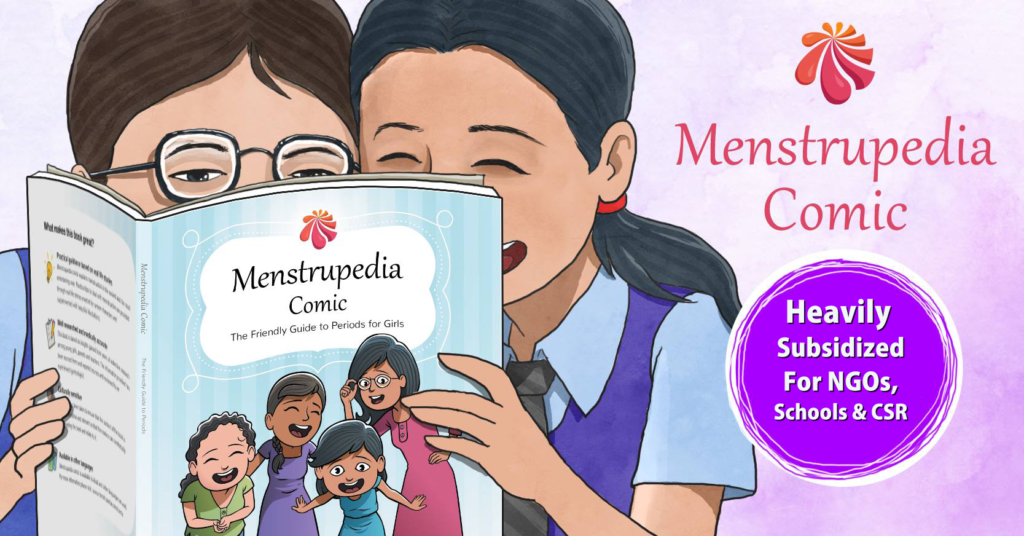
We are also aware that the taboo around menstruation has been around for centuries, and having only one perspective will not work. We need to do much more to change mindsets over time. Sometimes, to change such mindsets, stringent laws can also work.
Looking at the bigger picture, we need changes at the policy level as well. The government must set guidelines on how women should be treated in schools and colleges. If they don’t have such a policy in place yet, then now is the time to come up with one. It is truly the need of the hour. We can collectively give rise to a new generation of children who don’t think that menstruation is impure and by doing so, manage to successfully rid society of its period stigma. For all this to work however, all the stakeholders’ concerned need to come together and work collectively towards the much-needed goal of liberation from menstrual taboos, stigma, and related discrimination.
 Author: Aditi Gupta (Co-founder, Menstrupedia)
Author: Aditi Gupta (Co-founder, Menstrupedia)
Editor: Divya Rosaline


